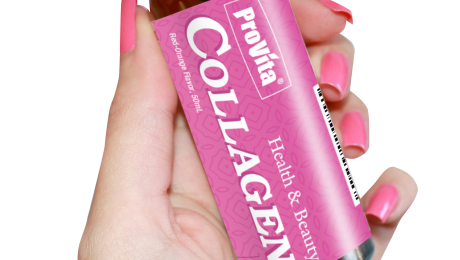As the skin generation goes through different stages, it get to appear with different changes such as pigmentation, fine lines, blackheads, dryness and many more. The release of collagen from the body could come as so many reasons such as sun exposure and the unhealthy routine along with improper appetite being followed by the individuals.
Activities like smoking, alcohol, lack of sleep can cause the skin to bring radical changes in the dermal layer of your skin.
How do it changes?
Reliably, dermas being the essential piece of skin, together with elastin and hyaluronic destructive, collagen have a key worker in giving decorum and adaptability to this organic part of our skin.
There are various significant methodologies that provoke the movements in developed skin, for instance, changes in the turnover of the extracellular cross section proteins inside the dermal layer of the skin, a rising in the red hot markers, and diminished circulatory system.
And then, hardly noticeable differences begin to show up when the breakdown of collagen inside the dermis outperforms its association.
What to do for overcoming this natural dilemma?
Now that we know that this key component of the human structure decreases over time, it makes sense that we need to supplement regularly with Collagen drink to support the ongoing prime function of the body’s developments controlled by collagen.
Before we get to supplementary products, there is one myth we should go over first.
MYTH ABOUT COLLAGEN
Many people mistake collagen for gelatin. Let’s set the record straight on the difference between the two. Collagen, as you have learned above, is a short-chain amino acid that is insoluble and makes up many parts of the human body. We also know that, today, few people actually eat those parts.
When you cook these parts, gelatin is released. You can think of gelatin as cooked, heated, or broken-down collagen. Consider bone broth. Bone broth is the best example of the transformation of collagen into gelatin. Collagen and gelatin is essentially the same product with the same amino acid makeup, and they work in the body in a similar way. (Source)
Effectiveness of the skin through an experimental cross sectional research:
The research was conducted to find whether an oral collagen containing acclaimed natural ingredients and served as a great-tasting beverage, would be workable in enhancing skin properties.
The analysis was accomplished by the standards of International Good Clinical Practice.
About the methodology, a gathering of 18 postmenopausal ladies were requested to test the item, and the outcomes were contrasted with a comparable gathering of ladies taking replica treatment.
The outcomes demonstrate that a blend of hydrolyzed collagen and hyaluronic corrosive, together with different fixings, when expended orally for 9 weeks can essentially diminish the severity of wrinkles, though there was no huge decrease with replica treatment.
As a result, there was 8% decrease in wrinkle perceptiveness in the group who took the collagen for skin, which was observed to be huge (P = 0.037).
AUTHOR’S BIOGRAPHY
The article is jotted down by Rutaba Hashmi, who is working as a promotional and content writer in a software-based firm. Rutaba feel fascinated in writing promotional content for the brand awareness purposes and want to pursue her career in the accordance.
REFERENCES:
1- Borumand M, Sibilla S. Effects of a nutritional supplement containing collagen peptides on skin elasticity, hydration and wrinkles. J Med Nutr Nutraceut 2015; 4:47-53
2- Six Surprising Reasons You Should Be Taking Collagen Daily. Heather Denniston; February 21, 2017
Much to the displeasure of collagen spread all over, the vast majority of the instant
microbiome and collagen investigate stays in its earliest stages. Be that, as it may,
there is some confirmation that amino acids in collagen, particularly glycine, may
diminish GI irritation in conditions like peevish gut disorder and enhance beauty
integration.
Also, glutamine, one of collagen’s other amino acids, is key for averting intuitive
irritation and restraining oxidative anxiety of the digestion regions.
It’s a well-known fact that all that we do encourage some part of our wellbeing. So
it’s obvious that huge numbers of our life choices can either drain or protect collagen
levels. While the jury is out on exactly how much collagen is required to see an
eminent change in body physiology or to what extent it takes to begin resting easy,
Provita Collagen is best collagen product, certain to keep your collagen levels
sound.
Since you’ve heard it said by skin specialists, masters, and possibly even your closest companions. Oral collagen is the new popular natural expression on each one’s lips, and it would now be able to be found in pretty much everything from creams and makeup, to powders and pills.
Furthermore, truly, this might be one example where the publicity and advertisement is really justified.
Similarly as with most things happen everyday life, anticipation is superior, so the prior you begin taking collagen, the better it is. It would have been prescribe beginning in your late twenties to mid-thirties to get the best outcomes.
It’s subject to what your own particular targets are and your way of life, however by and large taking the beverages in your 30s would be appreciated both as far as upgrade and avoidance.
PROVITA COLLAGEN IS A NATURAL TREATMENT TO YOUR SKIN AND BODY
Much to the displeasure of collagen spread all over, the vast majority of the instant micro biome and collagen investigate stays in its earliest stages. Be that, as it may, there is some confirmation that amino acids in collagen, particularly glycine, may diminish GI irritation in conditions like peevish gut disorder and enhance beauty integration.
Also, glutamine, one of collagen’s other amino acids, is key for averting intuitive irritation and restraining oxidative anxiety of the digestion regions.
It’s a well-known fact that all that we do encourage some part of our wellbeing. So it’s obvious that huge numbers of our life choices can either drain or protect collagen levels. While the jury is out on exactly how much collagen is required to see an eminent change in body physiology or to what extent it takes to begin resting easy, Provita Collagen is best collagen product, certain to keep your collagen levels sound.
AUTHOR’S BIOGRAPHY
The article is jotted down by Rutaba Hashmi, who is working as a promotional and content writer in a software-based firm. Rutaba feel fascinated in writing promotional content for the brand awareness purposes and want to pursue her career in the accordance.
Collagen is a bioactive ingredient that improves skin properties to achieve an optimal skin condition. Collagens are the major structural element of all connective tissues, such as skin, bone, cartilage and tendons. They contribute to the stability of tissues and organs and maintain their structural integrity (1). Collagens are centrally involved in the formation of fibrillar and microfibrillar networks of the extracellular matrix, basement membranes as well as other structures of the extracellular matrix. There are 20 different types of collagen. Collagen VII plays a major role in skin regeneration. A marked loss of fibrillin-positive structures as well as a reduced content of collagen type VII (Col-7), may contribute to wrinkles by weakening the bond between dermis and epidermis of extrinsically age skin. Anchoring function of certain collagen types could contribute to the formation of scaffolds promoting tissue repair or regeneration (2). In older skin, collagen looks irregular and disorganized the ratio of Col-3, to Col-1 has been shown to increase, due, significantly, to a loss of Col-1. The overall collagen content per unit area of the skin surface is known to decline approximately 1%/year (3). Collagen degradation and disturbed metabolism are important in the course of osteoarthritis and osteoporosis. The total hyaluronic acid (HA) level in the dermis of skin that age intrinsically remains stable; however, epidermal HA diminishes markedly.

References
1. Ganceviciene, R., Liakou, A. I., Theodoridis, A., Makrantonaki, E., & Zouboulis, C. C. (2012). Skin anti-aging strategies. Dermato-endocrinology, 4(3), 308-319
2. Avila Rodríguez, M. I., Rodríguez Barroso, L. G., & Sánchez, M. L. (2018). Collagen: A review on its sources and potential cosmetic applications. Journal of cosmetic dermatology, 17(1), 20-26
3. Rogers, H. J., Weidmann, S. M., & Parkinson, A. (1952). Studies on the skeletal tissues. 2. The collagen content of bones from rabbits, oxen and humans. Biochemical Journal, 50(4), 537
The most common solutions available in the market for improving skin condition includes skin peelings, facial creams, galvanic electricity, and the oral supplements with hydrolysate biomolecules. Most of the products target on collagen production enhancement or replacement in the skin. The global collagen market size was estimated at USD 3.71 billion in 2016, and is anticipated that it would reach USD 6.63 billion by 2025 as a growing demand by the population and because of its increased use. There is an increase in the use of marine-based products in cosmetics and healthcare applications. The global tissue-engineered collagen biomaterial market is likely to progress at a robust CAGR (compound annual growth rate) of 10.4% during the period between 2017 and 2025 (a). There is an increasing demand and use of cosmeceuticals by public in recent years. The marine collagen market is witnessing growth owing to the growth in demand for beauty products, increase in the number of R&D activities, innovations in the medical field, technological advancements, and by-product utilization and processing due to the growth of the fish processing industry. The use of diet supplements to improve the appearance and function of aged skin has received growing attention. It is important to make the right choice when selecting the product as poor choices may lead to waste of money and unsatisfactory results.
a. Avila Rodríguez, M. I., Rodríguez Barroso, L. G., & Sánchez, M. L. (2018). Collagen: A review on its sources and potential cosmetic applications. Journal of cosmetic dermatology, 17(1), 20-26.
With age, changes in the metabolic processes of structural components of the skin lead to visible signs of aging, such as increased dryness and wrinkle formation; discoloration, laxity, dullness and roughness. Aging also affects wound repair, pigmentation, innervation, immunity, vasculature, and subcutaneous fat homeostasis. Altogether, age-related alterations of skin lead to age-related skin fragility and diseases. Skin color, clinical scores, and skin elasticity seem to exist independently from chronological ageing and thus seem to be mainly influenced by extrinsic factors (1). Gradual loss of skin elasticity leads to the phenomenon of sagging. Slowing of the epidermal turnover rate and cell cycle lengthening coincides with a slower wound healing and less effective desquamation in older adults. Studies say that collagen plays a major role in the skeletal health (2). It has a catalytic role in the process of wound healing (3). Collagen is the main structural protein of the different connective tissues, such as skin, bone, cartilage and tendons. Oral administration of Collagen from fish skin had obvious protective effects on photo-aging skin, including improving moisture retention ability, repairing the endogenous collagen and elastin protein fibers. Many dietary components, such as polyphenols, vitamins, fatty acids, trace minerals and proteins, have reported to exert beneficial effects on aged skin and have been used as nutraceuticals or functional foods in many countries and regions (4). It’s not just about the youthful appearance but also a healthy lifestyle that plays important role.
References
1.Borumand, M., & Sibilla, S. (2014). Daily consumption of the collagen supplement Pure Gold Collagen® reduces visible signs of aging. Clinical interventions in aging, 9, 1747.
2.Song, H., Zhang, S., Zhang, L., & Li, B. (2017). Effect of Orally Administered Collagen Peptides from Bovine Bone on Skin Aging in Chronologically Aged Mice. Nutrients, 9(11), 1209
3.Rogers, H. J., Weidmann, S. M., & Parkinson, A. (1952). Studies on the skeletal tissues. 2. The collagen content of bones from rabbits, oxen and humans. Biochemical Journal, 50(4), 537.
4. Martin, P. (1997). Wound healing–aiming for perfect skin regeneration. Science, 276(5309), 75-81.
Several anti-aging strategies have been developed in recent decades which include cosmetological strategies, topical and systemic therapeutic agents and invasive procedures. Aging affects the skin biology to a great extend as it is visible to us. Whereas, aging signs of internal organs are masked from the ambient “eyes”. Chronological aging occurs due to the decline of skin structure and function which is a part of a natural human “aging mosaic”. Skin is the largest organ in the human body, and serves several important functions. It is the largest sensory organ which provides a physical barrier against environmental factors (a).
The unpreventable intrinsic ageing process diminishes the self-renewing capability of the epidermis, which provides vital barrier function. Skin ageing is also influenced by exogenous factors as well. Skin aging is a complex biological process influenced by combination of factors contributed internally and externally which leads to progressive changes in each skin layer as well as changes in skin appearance. Non-prescription topical skincare products are been highly studied and recommended by skin care professionals. In addition, to guide patients toward understanding basic skin biology and choosing optimally effective skin care products clinical studies have also demonstrated that the beneficial effects of collagen intake on its benefits. Desired skincare benefit includes improving facial skin elasticity, reduce skin dryness and wrinkles, and increase the collagen content of the skin dermis. High-quality, drinkable collagen supplements not only replenish the body’s own collagen, but stimulate the body’s own natural production as it ages (b).
Reference
a. Ganceviciene, R., Liakou, A. I., Theodoridis, A., Makrantonaki, E., & Zouboulis, C. C. (2012). Skin anti-aging strategies. Dermato-endocrinology, 4(3), 308-319.
b. Mayoral, F. A., Kenner, J. R., & Draelos, Z. D. (2014). The skin health and beauty pyramid: a clinically based guide to selecting topical skincare products. J Drugs Dermatol, 13(4), 414-421.
Seventy percent of our skin is made from collagen. Within the skin, collagen is the main component of the dermis: the layer that gives our skin elasticity and flexibility. Beginning at age 21, our body’s production of new collagen begins to decline and existing collagen begins to break down. By the time we are around 60 years old, we have half as much collagen as we did at the age of twenty-one. In addition, collagen synthesis rates – our body’s ability to create new collagen – have dropped by 75%1. Exposure to UV rays throughout our lifetime furthers this depletion, which leads to wrinkles, dryness, and saggy skin. Research shows oral collagen protein supplementation can help aging by firming and hydrating skin and removing deep wrinkles. Additionally, collagen helps aging by protecting against UV-induced skin damage. Learn about all the collagen anti-aging benefits below.
Collagen increases skin elasticity and hydration
Many clinical trials have shown collagen protein supplementation increases skin elasticity and hydrates skin. In one trial, women aged 35 and over showed statistically significant improvement in skin elasticity and skin hydration among subjects given 2.5 or 5 g of collagen daily for 8 weeks 2. In another study among women ages 40 to 60, supplementation with collagen for eight weeks helped with anti-aging as it showed a 28% average increase in skin moisture levels, and 91% of subjects reported less dry skin after supplementation3.
Collagen suppresses UV-induced skin damage and photoaging
Research has found a positive effect of collagen peptide ingestion on reducing skin damage associated with sun exposure. Repeated UV exposure has been linked to aging effects on the skin, including wrinkle formation, decreased hydration, and decreased skin-collagen content. In a study measuring skin changes in subjects who were repeatedly exposed to UV damage for 6 weeks, the subjects who were given collagen peptides throughout the trial demonstrated fewer effects of sun damage compared to the control group4. Another study showed a 31% decrease in skin-collagen fragmentation after supplementation for 12 weeks3.
Collagen decreases wrinkle depth and volume
Another study measuring the effect of collagen intake on skin wrinkles showed a statistically significant reduction of eye wrinkle volume in comparison to the placebo group after 4 and 8 weeks of daily collagen intake5.
Collagen hides cellulite and eliminates stretch marks
By strengthening the dermis layer of our skin, collagen also plays an important role in hiding cellulite and removing stretch marks. Cellulite becomes more visible as our skin stretches, thins, and sags. By increasing skin-collagen expression and improving skin elasticity and thickness, collagen helps to generate stronger, thicker skin that eliminates stretch marks and hides fat beneath the skin.
Oral intake of collagen improves skin more than topical creams
While collagen is used in many skin creams and lotions, it unfortunately does not get absorbed by the skin when applied topically. Topical collagen usually contains full-length collagen protein molecules, which are too big to penetrate the skin. Oral collagen peptides are shorter-chain protein segments that are readily absorbed into the bloodstream and utilized by the skin. In order to reap the full benefits of collagen, it must be ingested in peptide form to promote synthesis of new collagen fibers in the skin. Research supports the direct relationship between oral collagen peptide ingestion and skin collagen content. In a study measuring the effect of collagen hydrolysate intake on expression of collagen in the skin, oral administration of collagen peptides for four weeks almost doubled the amount of collagen produced by skin fibroblasts6.
UV exposure causes collagen fragmentation
Collagen breakdown is a chronic part of our aging process – as our cells age, their ability to produce collagen diminishes. Scientists have determined that 50% of our collagen decline is due to this chronic aging, but another 30% of this loss is due to photoaging: breakdown of collagen by UV exposure. Scientists have linked UV exposure to an increase in collagen-degrading enzymes in our skin. Once collagen molecules have been fragmented, the ability of skin cells to synthesize new collagen slows, creating an irreversible decrease in collagen production and total collagen content over time1.
Collagen degradation may lead to skin cancer
Research suggests that degenerated or damaged collagen may play a significant role in the formation of precancerous and cancerous skin cells. Degeneration of skin collagen caused by skin diseases, UV radiation, and injury leads to the development of “pseudoelastic tissue,” which has been found to be a precursor to cancer7.
Review of Collagen Benefits for the Skin and Anti-aging
– Collagen increases skin hydration and elasticity
– Collagen helps to reduce skin damage caused by the sun, which is linked to aging effects, including wrinkles and reduced skin hydration
– Collagen supplementation can help to reduce wrinkle depth and volume
– Collagen supplementation helps to hide cellulite and strength marks by strengthening the dermis layer of our skin
– Oral collagen peptides are absorbed into the bloodstream, making them more effective than topical collagen skin creams that do not get absorbed by the skin
– UV exposure has been shown to cause photoaging, breakdown of collagen
– Damaged or degenerated collagen can play a role in the formation of precancerous or cancerous skin cells







